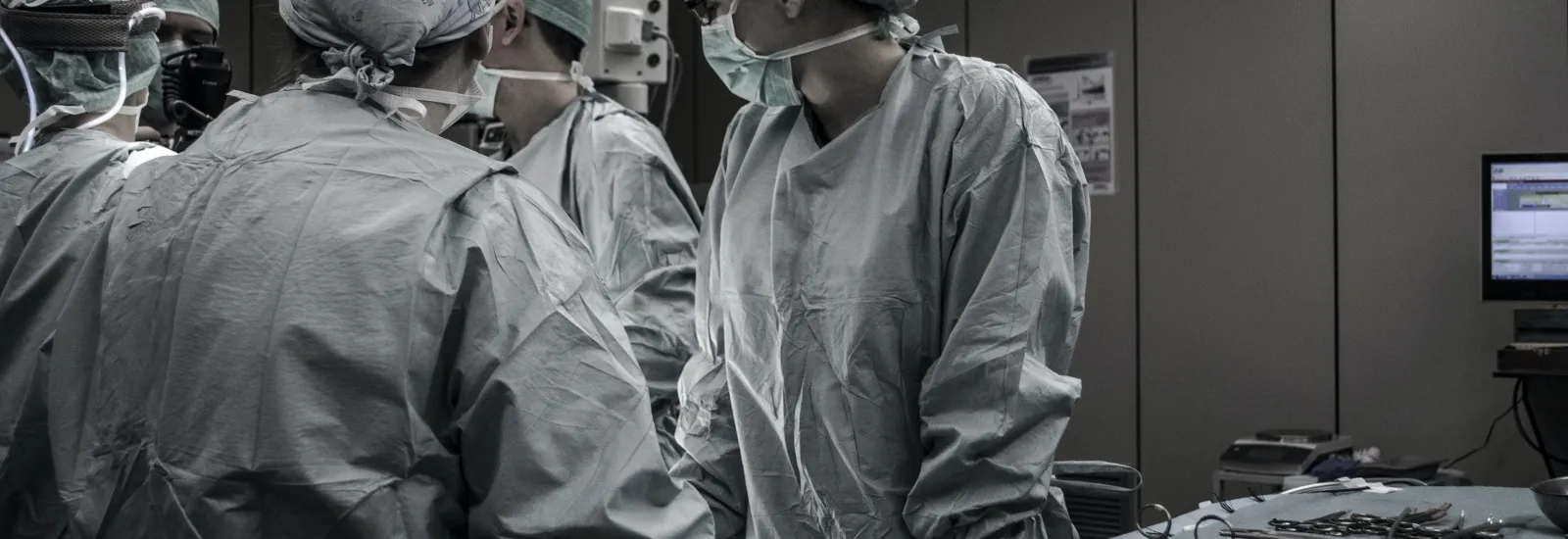
Who is part of your surgical team, and what do they do
3-minute read
If you're planning to have an elective general surgery
procedure, it's natural to be a little nervous. Preparing for your procedure
with perioperative
care and learning what
happens before, during, and after surgery can help ease your anxiety. It
also helps to understand who's who on your surgical team and what role each person
plays.
Your surgeon: The leader of the surgical team
The most important member of your surgical team is the general
surgeon, who will perform the procedure. You'll meet with your surgeon
before surgery to discuss the procedure and will likely follow up with them
afterward.
General surgeons complete four years of medical school
followed by at least five years of additional training known as a residency. During
residency, they gain experience in all aspects of surgery, including critical
care, trauma surgery, cancer surgery, and more. They also hone their skills at
operating on every area of the body. Surgeons take exams to receive board
certification, a marker of high-level skills and expertise, from the American
Board of Surgery.
Your anesthesiologist: Keeping you
comfortable during surgery
Another key member
of your surgical team is the anesthesiologist. Before, during, and after surgery,
you'll receive anesthesia care to minimize pain and make you as comfortable as
possible. The anesthesiologist will oversee delivery of the medicine. While the
surgeon is operating, the anesthesiologist will keep close watch on your heart
and lungs to ensure they continue working correctly.
You'll meet
with the anesthesiologist before the procedure to determine what kind of
anesthesia would be right for you. For some surgeries, general anesthesia,
which allows you to sleep during the procedure, is most appropriate. In other
cases, you might only need sedation, which relaxes you, or anesthesia that
numbs a specific part of the body.
Like
surgeons, anesthesiologists also receive many years of education and training.
After four years of medical school, anesthesiologists devote at least four more
years to training in anesthesia care. They are certified by the American Board
of Anesthesiology.
Other important surgical team members
A surgical team should run like a well-oiled machine. To do
so, it needs all its parts, not just the surgeon and anesthesiologist. In fact,
those clinicians rely on other members of the team to support and assist them. Additional
surgery professionals include:
- Certified registered nurse anesthetist (CRNA). CRNAs work closely with anesthesiologists. Like anesthesiologists, CRNAs deliver anesthesia and help monitor your vital signs during surgery. They also provide preoperative education about anesthesia and help you recover as the anesthesia wears off after surgery. CRNAs receive a bachelor's degree in nursing and must gain experience as a registered nurse by caring for critical care patients for at least one year before completing a three-year doctoral-level nurse anesthesia program. CRNAs have passed the National Certification Examination for Nurse Anesthetists.
- Operating room nurse. Also known as a
circulating nurse or perioperative nurse, this member of the team supports the
surgeon. If the surgeon needs a tool or medical device during the procedure,
the operating room nurse provides it.
- Physician assistant. Physician assistants
work with surgeons, specialists, and primary care providers to deliver a
variety of medical services. During surgery, a physician assistant helps the
surgeon and might handle minor parts of the procedure, such as putting in
stitches.
- Surgical technologists. Surgical techs play an important role, assisting the surgeon with various tasks during the operation, such as making an incision. Safe procedures require clean, germ-free surgical environments, so surgical techs help prepare a sterile operating room.
Considering an
elective surgery? Request an appointment with Reid Health General Surgery to
discuss whether a procedure would be right for you.

